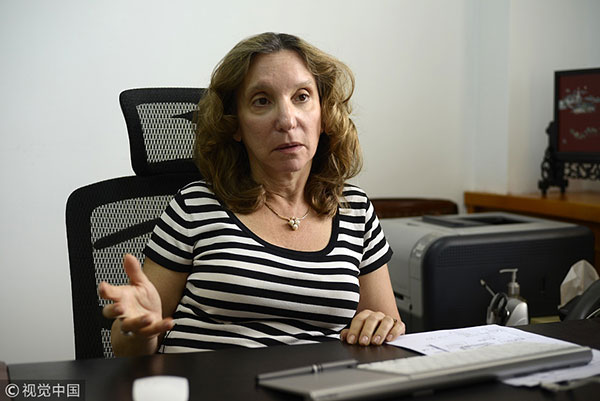From foreign land to Chinese dream: United Family Healthcare's Chinese dream

 |
| Lipson, also known as Li Bijing, founder and CEO of the United Family Healthcare. [Photo/VCG] |
After 38 years of living in China, Roberta Lipson, a US citizen, finally got her Chinese "green card" on July 10. To celebrate the occasion, she posted this in her WeChat Moments, "after 38 years I'm now finally a permanent Chinese resident", along with a picture in which she was with a colleague at the certificate issuing center, in a white dress, smiling widely.
Lipson, also known as Li Bijing, is the founder and CEO of the United Family Healthcare. She came to China in 1979 and started her business to help improve the country's public health and medical services by demonstrating a different approach to healthcare.
In 1997, the United Family Healthcare was established in Beijing. It is the first foreign-invested expert medical organization in China. Now her business has extended to many cities across the country.
For Lipson, becoming a permanent Chinese resident is something she always wanted. "My career is in China, and I have been in China for decades. China is my home. I would feel more comfortable if I have permanent residency," said Lipson during an interview with China Newsweek.
On Oct 18, the 19th CPC National Congress was held in Beijing. "I was excited about the report delivered by President Xi Jinping, in which he mentioned the Healthy China Strategy. To better fulfill our social responsibilities, we will bring more medical services to rural areas, provide more care to special-needs children and migrant workers," she said.
"This is also the dream of United Family Healthcare," Lipson added.





































